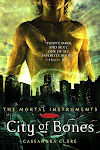
A Version of the Truth
Jennifer Kaufman/Karen Mack
Jennifer Kaufman/Karen Mack
In a Nutshell
Nothing has really gone right for Cassie Shaw. She’s finally hit the big 3-0, she’s a widow (albeit her dead husband was a jerk of the highest regard, but the stigma still remains), and dyslexic—something that made finishing high school a non-existent reality for her. She’s broke and needs a job, but doesn’t have the credentials for one. So she tells an eensy-weensy lie on her resume. It gets her an entry-level job at a university, working for Professor William Conner, who is every bit as interesting and unique as the wildlife that Cassie loves so dearly.
Nothing has really gone right for Cassie Shaw. She’s finally hit the big 3-0, she’s a widow (albeit her dead husband was a jerk of the highest regard, but the stigma still remains), and dyslexic—something that made finishing high school a non-existent reality for her. She’s broke and needs a job, but doesn’t have the credentials for one. So she tells an eensy-weensy lie on her resume. It gets her an entry-level job at a university, working for Professor William Conner, who is every bit as interesting and unique as the wildlife that Cassie loves so dearly.
She begins to explore the thought-provoking world of literature at her own pace, which opens her up to new experiences and gives her a new perspective on life. Her only problem is that the longer she maintains her job, the bigger her little lie becomes—and it’s not a matter of if so much as when this lie will be discovered.
What’s right with it?
The pages are filled with the greats of literature, paying homage to Keats, Descartes, Thoreau and Plato. The authors did a good job of integrating these thinkers and their arguments into the plot, to shape Cassie’s change of perspective. Her emotional journey—going from a woman stunted by low self-esteem, to one of esteemed thinking—is a fascinating and believable one. Interspersed throughout the novel is caustic wit that lifts the mood every now and then, and stops it from getting too heavy.
Cassie’s relationship dramas are also something every woman can relate to. She has her fair share of being burned by jerks, and being tricked into bed by that man with the smooth tongue. Despite the setbacks, however, she proceeds forward, leaving them in her dust with her head high—a good example for all women who have been in similar situations.
What’s wrong with it?
Once you finish the novel, you’re left with a lack of resolution. Due to the fact the novel reads more like a journal than anything else, it doesn’t have the much needed climax that most books contain. You’re left hanging for what is coming next, only to find that there is nothing left. The plot itself isn’t a very big or complicated one. Instead, the novel feels like an emotional, literature-filled journey of self-discovery. The problem with this is that if the reader isn’t prepared to accept this journey as a main part of the story, then they will hate it with a passion.
Last word
A Version of the Truth is one of those rare books that don’t have the feel of a traditional novel, even though it contains many elements of one. As a result, you get a very different experience from reading it—whether this experience was expected or wanted is up to the reader to decide.
Scale-of-awesomeness
Better than laundry


No comments:
Post a Comment